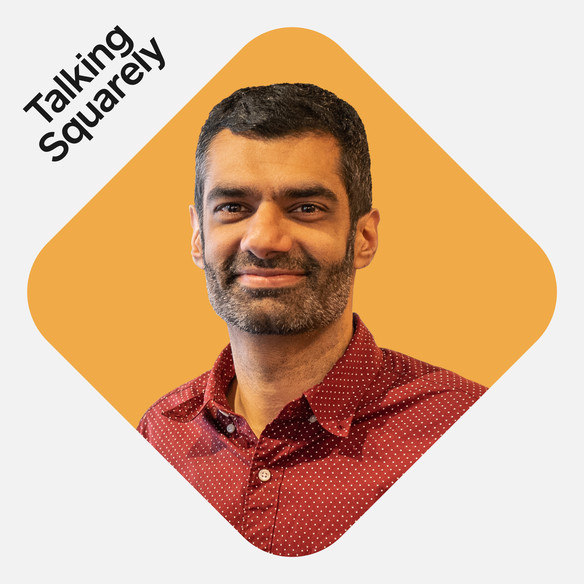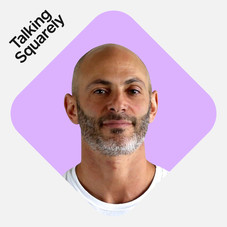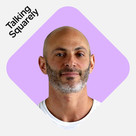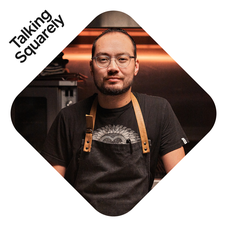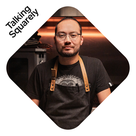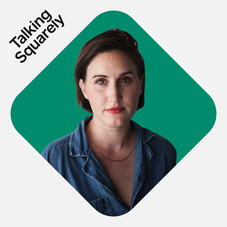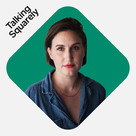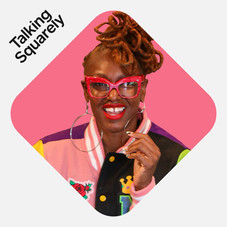Table of contents
A little bit about this episode on work-life balance and how business owners are finding personal time amidst the chaos…
For many small business owners, there is a balancing act between running their shops, having a family, and, now, dealing with a global crisis. In this episode, we talk with three business owners about how they manage both their professional and personal lives, maintain work-life balance , and how COVID-19 has changed their approach.
This episode features Cheryl Tisland of Burst of Butterflies in Chandler, AZ; Samir Idnani of NaanStop in Atlanta, GA; and Danielle Mullen of Semicolon Bookstore in Chicago, IL.
When it comes to running their businesses during the pandemic, the lines between work and business became blurry, forcing business owners to set boundaries and prioritize mental health. For some, their businesses were already a family affair, for others employees became like family as long hours and emergency pivots brought them closer together.
“It’s actually kind of interesting because when the pandemic began, we were shut down for a few months. So I told the staff, ‘I don’t know what’s going to happen, but I don’t want to let you guys go. We’re going to work together and make this happen,’” says Burst of Butterflies co-owner Cheryl Tisland. “I didn’t know we were going to be shut down for so long, but we all got together and renovated the inside of the shop. We painted the floor. We painted the walls. We rearranged things. We did everything we could to stay busy.”
Semicolon Bookstore owner Danielle Mullen and her staff put the idea of escaping your own mind into action during this time to cope. “So I like to challenge myself to see what another business that is completely out of my lane [is doing],” she says “We talk about it. They call this process, ‘making it cooler’ and we just sit down and talk about the things that we will change when we come out of this pandemic. So it just gives everybody something to look forward to, because everybody has these huge ideas and it’s our form of escapism.”
“As hard as it is, one, carve out ten minutes a day for yourself. Whatever it is you need to do, whether that’s take a walk, breathe the fresh air, meditate, whatever it is you need to do, ten minutes is not too much. Ten minutes makes a world of difference. And I struggle with this daily. That ten minutes daily probably ends up with like thirty minutes weekly, but you got to take care of yourself first before you can take care of your business and other people” says NaanStop Co-Founder Samir Idnani who runs the business with his brother. “I think it’s important to remember, we try to remind ourselves, once we get through this, we’re all making changes to our business model a little bit. We’re getting more productive. We’re making improvements in our business and while that may, and probably doesn’t reflect on the bottom line currently, coming out of this, we’ll all be stronger and better because of it. So it’s nice to think about that from time to time.”

Full transcript below:
Samir Idnani:
As the business owner, the daily tasks that you work on haven’t really changed. But with less business to go around, I think probably all of us have taken more on ourselves to keep the business afloat. So we’ve just added more with less time to do it in.
Nelson Murray (host):
Hi, I’m Nelson Murray, and this is Talking Squarely. In this series, we bring together independent business owners to have frank discussions and share their perspectives on some of the most pressing issues impacting their lives and livelihoods.
For many small businesses, the changing regulations around the COVID-19 pandemic have upended working hours and affected how they balance business needs with personal wellbeing. Between family, business, and self care it’s a balancing act that’s never been more important than right now.
Today we talk with three business owners who are on their own search for work-life balance during a global pandemic and hear their strategies for maintaining healthy boundaries.
Cheryl Tisland:
I’m at the shop right now. I’m here pretty much from morning to night, every day, have been for the last eight months. And I’ve gotten closer with my staff, and a lot more resilient. Or the little things that used to bother me are not that big of a deal anymore because there’s just this major thing going on. We all work together in a different way than we did before.
Nelson Murray (host):
That’s Cheryl Tisland, the owner of Burst of Butterflies, an arts and craft store in Chandler, Arizona. The pottery and canvas painting space is family owned and operated, but like so many businesses it’s had to pivot their offerings as COVID restrictions have altered the number of people allowed to gather there.
Cheryl Tisland:
Thankfully, my two sons are adults and they helped me quite a bit. I cannot imagine if I had to take care of young children, or a family member, or anything like that. I have a lot of freedom to be able to do what I need to do without having to focus on kids or anything like that, so that helps a lot.
Nelson Murray (host):
For Samir Idnani, caring for his young daughter while managing his restaurant NaanStop reminds him of the early days of launching his business.
Samir Idnani:
When we first started, I was doing double duty. I had a day job with AT&T and I was working evenings and weekends with NaanStop and my brother Neil was running the store day-to-day. So we kind of had a division of labor there where he was overseeing the staff, taking care of inventory, serving guests, cleaning. And I was working on more marketing and finance stuff behind the scenes.
But as we’ve gone, I’ve since left my day job about three years ago, and fully in the business doing the same, marketing, serving guests, scheduling, cleaning, catering. As a business owner, you step in to do whatever is needed whenever it is needed.
Nelson Murray (host):
In the case of Danielle Mullen, the owner of Chicago’s Semicolon Bookstore, the personal and professional have always been intertwined. Danielle’s partner is also an entrepreneur, and business has always been at the forefront of her mind, even on vacation.
Danielle Mullen:
I went to Cuba for four days and I did not think I was going to make it because I was like, I cannot not check my email, I cannot check anything. Everything is going to go wrong right now. I’m going to give back. There will be no business.
The biggest impact has been, I always say, ‘never not working’. You can leave work for a second. You can go get a drink and go have a meal, and be able to think clearly outside of the workspace. I have not been able to do that since we first had to close our store on March 13th. Every free moment is spent thinking about how we have to pivot yet again. So I don’t even have the mental space for too much of anything anymore.
Nelson Murray (host):
What were some of the work-life balance challenges that you faced prior to the pandemic?
Samir Idnani:
It’s hard to draw a distinction because you’re so passionate about your own business. For Neal and I, we serve our mom’s recipes, and our mission is to make Indian food more approachable for everyone, and serve it in a way that’s more comfortable and easy for people to understand. It’s very personal.
Nelson Murray (host):
Danielle, how have your relationships changed, if at all, in response to the changes to your business? Is there anyone that’s come through as a means of support to you?
Danielle Mullen:
I agree with Samir. It’s definitely having friends and family around you who are understanding enough to know that the work does not stop ever. Dinner is out and you expect to have carved out some time, and now your phone is ringing because something has gone horribly wrong when you thought everything was okay, it just becomes really normal.
My partner is also an entrepreneur and so us together is just, yeah we’re on vacation, but yes, I’m also on a call and that’s what it looks like sometimes. So I am trying to actively be better at not doing that so much, but your business is your baby, and it is the thing. And I hate to say it this way, but I value my business most, because I recognize that my business is of me and it represents me at a different level, on a more professional level. And so I like to give that as much attention as it needs at the moment.
Nelson Murray (host):
As everyone is painfully aware of at this point, the pandemic has really dominated everyone’s attention. And in each of your lives, as business owners, I have to imagine that it has dominated as well in some way. So what has been the biggest impact on your work-life balance as a result of COVID-19?
Cheryl Tisland:
It’s actually kind of interesting because when the pandemic began, we were shut down for a few months. So I told the staff, “I don’t know what’s going to happen, but I don’t want to let you guys go. We’re going to work together and make this happen.” I didn’t know we were going to be shut down for so long but we all got together and renovated the inside of the shop. We painted the floor. We painted the walls. We rearranged things. We did everything we could to stay busy.
Nelson Murray (host):
Samir, for you, business is family given the nature of your relationship with your brother as a co-owner of NaanStop, right?
Samir Idnani:
Right. So we get some quality time there, talking about the business. But we also are in a bubble with my brother and his family. We have daughters who are seven weeks apart and so it’s nice to be able to at least have some personal interaction and face-to-face interaction with family. And it’s awesome for the girls to play with each other, which they really need at this age.
Nelson Murray (host):
I’m curious for all of you, how do you figure out what you need to prioritize each day in your schedule? Of course, there’s a business related component to that, but can you also speak to this question from the perspective of trying to strike the right balance for your personal wellbeing?
Danielle Mullen:
I go by who has sent the most unanswered emails? How many days have I not responded to this? Well, I guess this is the thing.
Cheryl Tisland:
It’s hard to be pragmatic during this time. It’s whatever is on buyer at the moment. And you know what I haven’t responded to for a while, or who’s pressing me hard enough. I wake up each morning and I kind of have a plan for what I’m going to do. But there’s always these things that come in that I have to take time for that I wasn’t expecting. And it’s just putting out fires. That’s what I’ve been doing for eight months now. And it’s starting to become natural, that I don’t even know what’s going to happen. If this pandemic ever goes away and we get back to any kind of more calm state, am I going to just be stuck in this firefighting mode?
Nelson Murray (host):
So the prioritization is less of an active process and more of you just kind of defending against the things that are coming at you?
Cheryl Tisland:
Exactly.
Danielle Mullen:
That’s what it looks like right now.
Samir Idnani:
Especially right now with less time to plan or to carve out for self care and look forward, instead of just trying to keep the business afloat, that’s kind of the mode that we’re in.
I keep a paper to do list instead of an electronic to-do list, because the satisfaction of actually crossing things off and looking at it at the end of the day to see, I actually got ten things done today, versus an electronic one where things just disappear, and then you feel like what did I do? That gets overwhelming. But as I go through that paper list, I try to see, okay, start the morning with what are the things I have to get done today, no matter what, like they just have to get done. And then, what are things that might be longer term things, or projects that can save me time in the long run, and create more time for me to do other things?
But the day never goes how you anticipate. Like we had a hurricane come through here three or four weeks ago that knocked our power out for twelve hours and our internet for a week, and what do you do? Then you’re just scrambling to try and solve those issues, and stay open, or keep the food from going bad, or things like that.
Nelson Murray (host):
I’m curious to hear from you, Cheryl, what techniques or tools you adopted to try to make managing work, or at least tasks, a little bit easier?
Cheryl Tisland:
I take time every night where I just sit, and veg, and basically do nothing. I start every day at 7:30-8 in the morning. I don’t get home until 9 to 10 at night and I am non-stop during that entire time. And so, when I come home at night, first thing I do is I feed my dog, let her outside. And then I just sit before I go to bed, because otherwise, if I try to go to bed right away, I can’t because my mind is racing. So I try to just relax.
Nelson Murray (host):
And Danielle, what about for you?
Danielle Mullen:
I try to make a point to just be in a moment. And I will have to make myself step outside of my store and pay attention to what’s happening around me. Like there are cars there, there is rain falling on my head, which is not that bad. And try to just be grateful for the fact that we’re still going. Somehow, even in the midst of everything that’s going wrong, I am able to pay attention to other things going on around me, which means I am still here. That has been incredibly helpful.
Samir Idnani:
Good for you, Danielle. That’s so hard when you’re in the thick of things, and fires all around you, to take a minute and just collect yourself and observe everything going around. For me, meditation helps, but with the schedules, and I haven’t been regular with my meditation and you’re talking about something very similar, just be in the moment.
Danielle Mullen:
In the moment. Because the fires aren’t going anywhere, they’re not going to move. And so we have to move ourselves into a space that is more effective for us to better mitigate our current circumstances.
Nelson Murray (host):
It sounds like each of you voluntarily gave your business your everything and it was on your terms that you were, maybe you were overworking, but it was at least a choice that you were making. And that choice seems to have been taken away from you, just by the nature of the kind of unpredictable year that we’ve had. Is that fair to say?
Danielle Mullen:
Absolutely. I think the choice is the difference maker. It’s being able to say, “You know what? I am overworking now, I’m going to step away for 30 minutes,” or something like that. And now, being unable to do that without dropping one of the many balls we’re juggling at the same time.
Nelson Murray (host):
Have any of you reached out to other business owners for advice on how to handle either stress or to get tactical information about how to make business a little bit smoother?
Danielle Mullen:
I haven’t, because I’m like, I’m sure they’re going as crazy as I am. So I’m going to just let them be.
Cheryl Tisland:
We’re here in a downtown entertainment district, a historic community and so all of the shop owners here have been pretty close to each other. But during this time, we’ve all been trying to really help each other to sharing, and Facebooking, and talking to each other about how do you do this? And what can we do about this? And just trying to figure out ways to bring more people to the downtown area here and keep our businesses going.
So there’s been that interaction quite a bit. There’s a Contemporary Ceramic Studio Association that I’m a member of for the last six years and it’s studios all over the country and the world who are all struggling with this right now. And we communicate with each other on what can we do? What are the best practices? How can we introduce or pivot our business, introduce new things to our customer base, to keep our revenues flowing? So that’s been very helpful as well.
Samir Idnani:
It’s hard to do, given everything that’s going on and the constant firefighting, but it’s really important. We have a bunch of friends that own other small restaurant groups around the city of Atlanta, and try to keep in touch with them and see, what are they doing in response to the COVID crisis? What does business look like? It’s very helpful to keep abreast of what is happening in terms of other people’s business within the same industry.
Nelson Murray (host):
Danielle, for you I’m curious, if not reaching out to other business owners, what keeps you going?
Danielle Mullen:
Being a creative is helpful during these times because we are excellent at escaping in our mind and doing some ridiculousness that’s actually helpful. So I like to challenge myself to see what another business that is completely out of my lane [is doing], we’re booksellers, we have an art gallery. So I will pay attention to like a real estate company and what do their systems and processes look like, and how can we effectively implement those in my business? And it’s actually fun, because I draw it out with my team. We talk about it. They call this process, “making it cooler” and we just sit down and talk about the things that we will change when we come out of this pandemic. So it just gives everybody something to look forward to, because everybody has these huge ideas and it’s our form of escapism.
Nelson Murray (host):
I like that. Samir, what about for you? What keeps you going?
Samir Idnani:
I’m in business with my brother. This is our mom’s recipes and like I said, our mission is to bring Indian food to people in a way that they understand, people who are unfamiliar with Indian food.
So that’s what I remind myself of, and try to instill that in my team, and think about that daily. And I think it’s important to remember, we try to remind ourselves, once we get through this, we’re all making changes to our business model a little bit. We’re getting more productive. We’re making improvements in our business and while that may, and probably doesn’t reflect on the bottom line currently, coming out of this, we’ll all be stronger and better because of it. So it’s nice to think about that from time to time.
Nelson Murray (host):
Cheryl, how would you answer that question? What keeps you going?
Cheryl Tisland:
Same thing. We’re a family business. My mom, my sister, my son, myself, we’re in this for the long-term. And there is no option but to keep going. We are going to fight through whatever we have to do to succeed on the other side.
Nelson Murray (host):
What advice would you offer to other business owners who, like you all, are facing the same challenges with business activity, but also trying to navigate the personal challenges of 2020?
Samir Idnani:
As hard as it is, one, carve out ten minutes a day for yourself. Whatever it is you need to do, whether that’s take a walk, breathe the fresh air, meditate, whatever it is you need to do, ten minutes is not too much. Ten minutes makes a world of difference. And I struggle with this daily. That ten minutes daily probably ends up with like thirty minutes weekly, but you got to take care of yourself first before you can take care of your business and other people.
I’ve become more of a therapist to my team, because we’re all going through a lot of emotional changes and everybody is feeling differently about the pandemic, in terms of fear, like how much are you worried about COVID? And a new layer or a part of the relationship is helping people manage that, and trying to give people resources to take care of themselves.
Danielle Mullen:
I agree 100% with that. It is really difficult to get lost while we’re taking care of our teams, and we’re taking care of our business. And the self gets kind of lost in the midst of that and as much as our team and our business are trying to take care of us back, it doesn’t always happen.
Like Samir said, becoming a therapist to employees and whatnot, that’s a lot of what we’re carrying right now. So I think that ten minutes for self – we got a store puppy, it was a horrible idea, but that puppy has been saving my life because there’s always something to do with the puppy. So I have to stop what I’m doing and he forces me into it.
Nelson Murray (host):
Cheryl, what about for you?
Cheryl Tisland:
You got to just breathe and find ways to just get yourself back to center, and know that whatever is happening, it’s going to still be happening, and take care of the things you need to take care of. And then take a time out, even for a few minutes, just to take that breath. And that way you’re able to be better for your team and for your business, because you can clear your mind to face the next big thing.
Nelson Murray (host):
A special thanks to Cheryl, Danielle, and Samir for their perspectives on balancing the personal and professional as they continue to manage their businesses. Burst of Butterflies is located in Chandler, Arizona. Check them out online at burstofbutterflies.com. Semi-colon Bookstore is located in Chicago, Illinois. Their website is semicolonchi.com. NaanStop has three locations in Atlanta, Georgia. You can find them at naanstop.com.
You’ve been listening to Talking Squarely, a Square Production. This episode was produced by Mallory Russell, Cindy Lewis, Kira Deutch, Evan Groll, Travis Gonzalez, and Camille Kail. Our music was composed by Jordain Wallace, with sound recording by Sorrentino Media and Jamie Cohen. I’m Nelson Murray. Thanks for listening.
The views and opinions expressed in talking squarely are those of our guests and do not reflect the official policy or position of Square.
![]()

